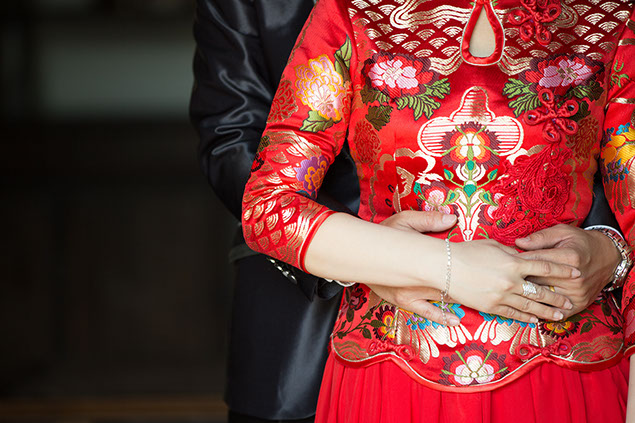Marriage and families in China today are being pushed and pulled by conflicting signals that would seem to herald the decline of traditional hierarchies. Whereas people’s identity used to be linked to membership of a collective, be it family or work unit, and intimate relations were largely mediated by parents and elders, today ‘individualisation’ has taken hold – people have individual identity cards, more freedom of movement with many moving away from home, and more say in their daily lives. Moreover, since 1979 the State has had a presence in the bedroom, dictating reproductive freedom and the number of children a couple can have.
But do not dwell too long on the unconventional aspects of that picture, cautions Dr Gonçalo Santos of the Hong Kong Institute for Humanities and Social Sciences, for even the most unusual marriages still retain an element of traditional Confucian values.
Dr Santos has co-edited an upcoming book Transforming Patriarchy: Chinese Families in the 21st Century that among other things explores the nature of marriage in modern China.
“A lot has been written that individualisation and deinstitutionalisation point to the loosening of the marriage form so it becomes a private issue. But I think this has overemphasised the degree to which various kinds of freedoms have emerged in China,” he said. “Individuals continue to be constrained by social and moral expectations. This is true in other societies as well as in China. In China younger generations do have more say nowadays when it comes to marriage, they are dating and having premarital sex, but in their choices, they also work really hard to please their parents.”

![]() In China younger generations do have more say nowadays when it comes to marriage, they are dating and having premarital sex, but in their choices, they
In China younger generations do have more say nowadays when it comes to marriage, they are dating and having premarital sex, but in their choices, they
also work really hard to please their
parents. ![]()
Dr Gonçalo Santos
Money concerns
The desire to strike that balance has led to variable approaches to marriage, however. A common trend is for young people to delay marriage in the face of all the pressures – although in the end, many still turn to their parents for support. Men in particular often require parental help to pay the ‘bride price’, usually a flat.
“The process of getting married involves making a huge amount of money that would not be possible to accumulate without the help of parents,” Dr Santos said. “In Communist times, people who lived in cities were able to acquire property at very cheap prices. To buy a house today is very expensive, so you are dependent on your parents. It’s not just a matter of ethics, of wanting to be a good filial son, but also a matter of economic constraints.”
Economic concerns may also be fuelling an opposite trend, towards early marriages. Dr Santos speculated these couples may want to tap into parental resources as soon as they can, but it was too early to tell if this was an effective and sustainable strategy.
Alternatively, some couples are shirking the money focus altogether and entering into ’naked’ marriages, without bride prices or wedding banquets. These have parallels with European civil ceremonies, which are minus all the bells and whistles of a full church wedding.
“In China there are anxieties emerging that we marry because of property and economic considerations. This reminds us of something that has happened in the last three decades and that is the ‘love’ revolution, which holds that marriage is about love, not about being a match. There has been a love revolution in India, too, but one thing we have to understand is that love in this context still remains strongly connected to more practical traditions,” he said.
Compelled by tradition
Often love marriages are still negotiated by parents and friends who look after the economics and other details of getting married. “One should not underestimate the power of a much older cultural tradition in handling these issues,” he said.
Yet another type of marriage is the fake marriage between gay men and lesbians, who use it as a front to keep their parents happy. “This is a good example of how the normative model of marriage is very strong and even people with completely different interests and desires feel compelled and pressured to marry.”
Traditions, then, die hard. Dr Santos believes arranged marriages may still be happening in China today, but even if parents are not arranging marriages, they work hard to make them happen – in some public parks they gather with signs listing their child’s attributes, hoping to find a perfect match.
“Patriarchy may no longer be the default model of Chinese families but that does not mean that strong hierarchies both at the generational and gender level do not remain in place, because they still do,” he said.
Transforming Patriarchy: Chinese Families in the 21st Century, co-edited by Dr Santos and Stevan Harrell, will be published by the University of Washington Press in November 2016.
A babysitting grandfather in Northern Guangdong.
Transforming Patriarchy: Chinese Families in the 21st Century will be published in November, 2016.

Next

MARRIAGE IN TRANSITION
Marriage in China today can come in a rainbow of permutations: fake or naked, arranged or for love, delayed or early. But traditional values still persist and underpin even the newfangled options, says anthropologist Dr Gonçalo Santos.



